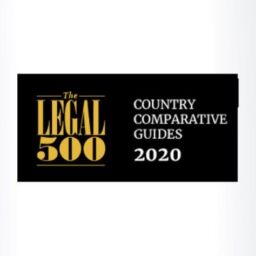On 24 August 2018, on the website of the Governmental Legislation Center a bill was published containing significant changes in income taxes and Tax Ordinance, including those concerning the so-called exit tax, collection of withholding tax, making tax optimization more difficult and tightening of CFC regulations. In principle, it is expected that the proposed changes will come into force on 1 January 2019.
The most important changes are the following:
- Introduction of the so called EXIT TAX; i.e., the tax on unrealized capital gains of the taxpayer who transfers their own assets, tax residency or permanent establishment outside the territory of the Republic of Poland. The tax is to be 19% of the taxable basis. Pursuant to the new regulations, the taxable basis is to be the sum of incomes from unrealized profits assessed for particular asset components. Meanwhile, the income will be a surplus of the market value of the asset to be transferred, including the one resulting from a change in the tax residence, over its tax value.
- A change in the system of payment of a lump sum WHT; in case of payment in excess of PLN 2 million to one taxpayer, the tax remitter will be obligated to collect WHT at the standard local rate, without taking into account the reduced rate or the exemption arising out of the EU Directive or international treaties. The refund of the overpaid tax will take place only upon an application of the tax remitter or taxpayer after verification has been made by the tax authority. It will be possible to obtain an opinion of the tax authority in order to apply the tax exemption in advance, but such an opinion will refer to the tax exemption only (and not to the reduced WHT rate) and it will need at least 6 months to be issued.
- Verification of foreign taxpayers; a taxpayer who makes payment to a foreign party will be obligated to act in good faith and with due diligence in order to make sure that their contracting party really is a tax resident of the country (as evidenced by the certificate submitted) and, that it does conduct real business activities in that country (it is not a “shell” company).
- The obligation to report tax schemes – MDR; the draft legislation introduces a new obligation for entities which provide advice to taxpayers to report taxpayers’ tax schemes to the Head of the National Revenue Administration by the end of March 2019.
- An additional tax obligation, i.e., more effective anti-tax avoidance clause; the tax authority will be able to impose an additional sanction on taxpayers if it issues a decision while applying the anti-tax avoidance clause. The sanction will amount to 40% of the tax advantage (in certain cases – 10%). Those rates can be doubled in some special instances.
- Vehicle operating costs; in case of failure to keep vehicle mileage logs, a passenger vehicle is, as a rule, deemed to have been used for mixed purposes, and so, only 75% of operating expenses will represent the tax cost. Also, there will be a restriction concerning the possibility of settling – as tax costs – the expenses incurred for vehicles used for mixed purposes in part assessed on the value of the vehicle exceeding PLN 150,000. This restriction also pertains to leased vehicles.
- CFC regulations to be further tightened up; the main change is to extend the scope of CFC by three groups of entities: (i) foreign foundations, trusts or other entities / titles of fiduciary nature; (ii) foreign capital groups or companies from a group which by themselves meet the prerequisites under Art. 24a Sec. 3 point 3 letter c) of the CIT Act; (iii) and separated organizationally or legally, parts of foreign companies or other entities with or without legal capacity.
- Tax attractiveness of equity financing to be enhanced; notional costs of raising debt capital are to be recognized against tax deductible costs (additional deduction of notional interest, i.e., notional interest deduction – maximum up to PLN 250 thousand in a tax year) in case the company’s source of financing are additional payments made by shareholders or the so called retained profit.
- Copies of certificates of residence; copies of the certificates will be allowed, but only in case of some intangible services, and on condition that the amount due to one entity does not exceed PLN 10 thousand annually, and the pieces of information on such copies do not cast any doubt.
- Introduction of innovation box exemption (in other words: IP Box); the draft assumes 5% preferential PIT and CIT rates on incomes from IP rights which have resulted from R&D works.
- Regulation of tax consequences of trading in virtual currencies.










